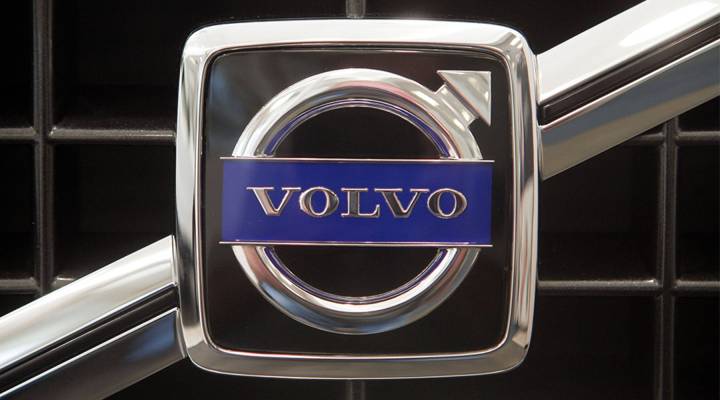
Volvo says driver-facing cameras are key to cutting crashes
Volvo says driver-facing cameras are key to cutting crashes

Volvo’s website carries a statement from CEO and President Håkan Samuelsson: “Our vision is that by 2020 no one should be killed or seriously injured in a new Volvo car.”
That deadline is fast approaching, and the aspiration is still looking out of reach, despite the company’s focus on safety tech, from safety cells surrounding passengers, to multiple airbags, to pedestrian detection and braking.
Now Volvo is shifting its attention to accident prevention and focusing on the human at the wheel, literally. It’s planning to install driver-facing cameras as standard equipment in all its cars in the next few years. If a computer detects drunk or distracted driving, then the car’s safety systems will intervene.
“That intervention could involve limiting the car’s speed, alerting the Volvo On Call assistance service and, as a final course of action, actively slowing down and safely parking the car,” the company said in a statement.
The proposal raises a few interesting privacy and liability questions, which Volvo said it’s ready for. The company “wants to start a conversation about whether carmakers have the right or maybe even the obligation to install technology in cars that changes their drivers’ behaviour.”
Attorney Jennifer Dukarski, who specializes in autonomy and mobility at law firm Butzel Long, wonders about consent and the privacy of passengers. She cautions that there is a patchwork of rules at the state level regarding image recording, which could run afoul on a road trip across a state border.
“It’s going to be a Wild West show for a little while figuring out how these new technologies are going to play out in the courts,” she said. But she believes there are rules in place, it’s just a case of applying them to new technology. That could involve a driver giving consent via a car’s infotainment screen, for example.
Driver monitoring could be welcomed and viewed as reassuring for some groups, like children worried about an elderly parent who refuses to give up the car keys or parents lending a car to teenagers. Bryant Walker Smith, an assistant professor at the University of South Carolina School of Law, says a car intervening and taking over control raises questions over ultimate legal authority. Maybe there’s a genuine reason for erratic driving.
“If someone is racing to a hospital and driving in a less than optimal manner, maybe we still want them to get to the hospital,” he said.
There are approximately 40,000 deaths on U.S. roads every year, and over 90 percent of accidents are caused by humans. Engineers say the way to cut that is to introduce autonomous cars controlled by computers that can’t get drunk or distracted. The eventual goal is for cars to drive themselves in all situations, but in the near-term future, manufacturers like Tesla and Cadillac are selling cars with semi-autonomous features, where a human still needs to be paying attention at all times.
Cadillac already has a driver gaze-tracking camera in some of its CT6 sedans equipped with Super Cruise, a hands-free feature. Anuj Pradhan at the University of Massachusetts Amherst, researchers human-vehicle interaction. He said driver monitoring is important. Humans are lulled into a false sense of security too easily.
“With high levels of automation or vehicles which allow the driver to be disengaged from the driving task, we can very much expect they will then engage in other secondary tasks like texting or reading or sleeping,” he said.
Volvo also recently announced plans to limit the top speed of its cars to 112 mph. It says tackling the trifecta of speed, and distracted and drunk driving, will close the gaps on its vision of zero fatalities.
There’s a lot happening in the world. Through it all, Marketplace is here for you.
You rely on Marketplace to break down the world’s events and tell you how it affects you in a fact-based, approachable way. We rely on your financial support to keep making that possible.
Your donation today powers the independent journalism that you rely on. For just $5/month, you can help sustain Marketplace so we can keep reporting on the things that matter to you.












